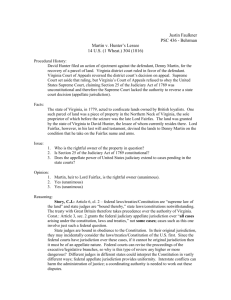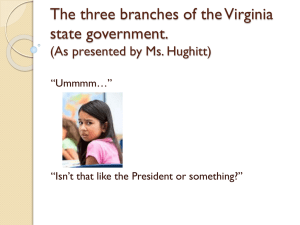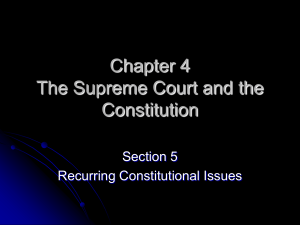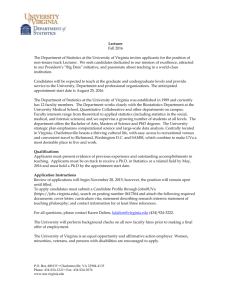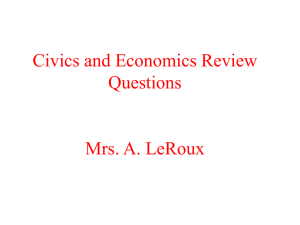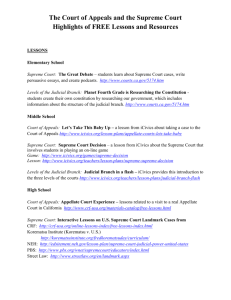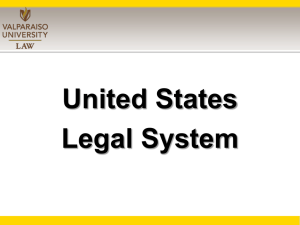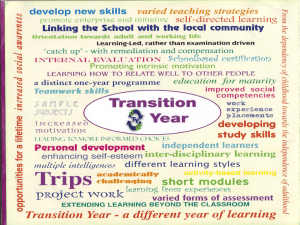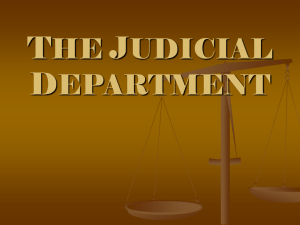WhE_Report Released On WVa Judicial Reform_111709
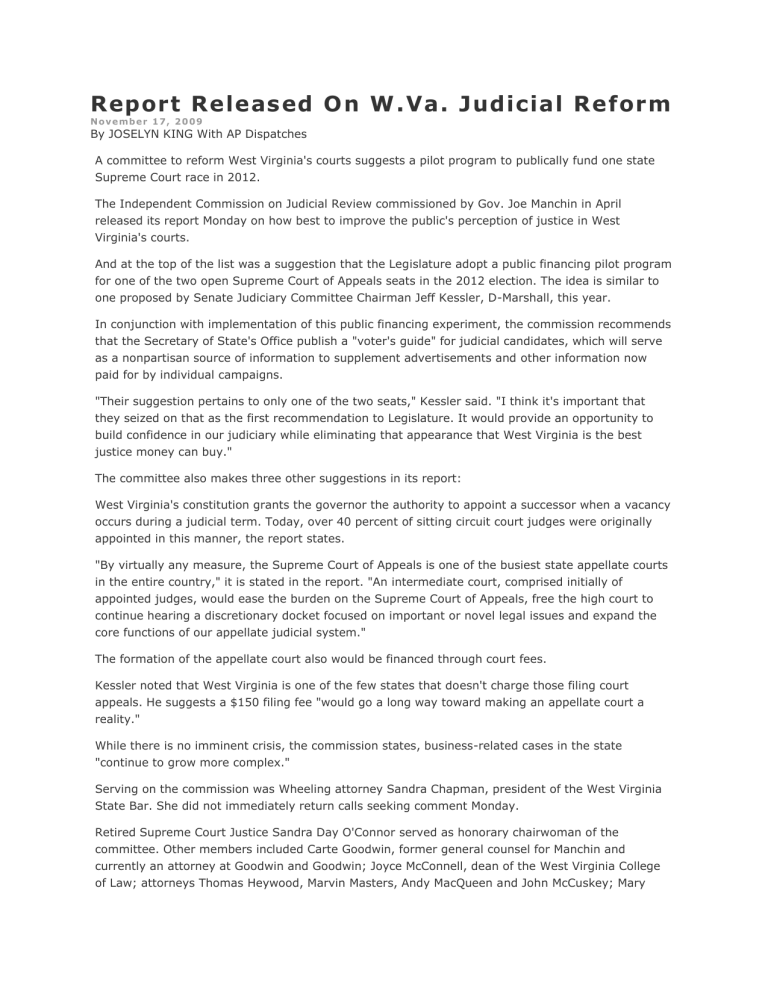
Report Released On W.Va. Judicial Reform
Nove mber 17, 2009
By JOSELYN KING With AP Dispatches
A committee to reform West Virginia's courts suggests a pilot program to publically fund one state
Supreme Court race in 2012.
The Independent Commission on Judicial Review commissioned by Gov. Joe Manchin in April released its report Monday on how best to improve the public's perception of justice in West
Virginia's courts.
And at the top of the list was a suggestion that the Legislature adopt a public financing pilot program for one of the two open Supreme Court of Appeals seats in the 2012 election. The idea is similar to one proposed by Senate Judiciary Committee Chairman Jeff Kessler, D-Marshall, this year.
In conjunction with implementation of this public financing experiment, the commission recommends that the Secretary of State's Office publish a "voter's guide" for judicial candidates, which will serve as a nonpartisan source of information to supplement advertisements and other information now paid for by individual campaigns.
"Their suggestion pertains to only one of the two seats," Kessler said. "I think it's important that they seized on that as the first recommendation to Legislature. It would provide an opportunity to build confidence in our judiciary while eliminating that appearance that West Virginia is the best justice money can buy."
The committee also makes three other suggestions in its report:
West Virginia's constitution grants the governor the authority to appoint a successor when a vacancy occurs during a judicial term. Today, over 40 percent of sitting circuit court judges were originally appointed in this manner, the report states.
"By virtually any measure, the Supreme Court of Appeals is one of the busiest state appellate courts in the entire country," it is stated in the report. "An intermediate court, comprised initially of appointed judges, would ease the burden on the Supreme Court of Appeals, free the high court to continue hearing a discretionary docket focused on important or novel legal issues and expand the core functions of our appellate judicial system."
The formation of the appellate court also would be financed through court fees.
Kessler noted that West Virginia is one of the few states that doesn't charge those filing court appeals. He suggests a $150 filing fee "would go a long way toward making an appellate court a reality."
While there is no imminent crisis, the commission states, business-related cases in the state
"continue to grow more complex."
Serving on the commission was Wheeling attorney Sandra Chapman, president of the West Virginia
State Bar. She did not immediately return calls seeking comment Monday.
Retired Supreme Court Justice Sandra Day O'Connor served as honorary chairwoman of the committee. Other members included Carte Goodwin, former general counsel for Manchin and currently an attorney at Goodwin and Goodwin; Joyce McConnell, dean of the West Virginia College of Law; attorneys Thomas Heywood, Marvin Masters, Andy MacQueen and John McCuskey; Mary
McQueen, president of the National Center for State Courts; and Caprice Roberts, associate dean of the West Virginia University College of Law.
Supreme Court officials either declined comment or were unavailable Monday, spokeswoman
Jennifer Bundy said. The state's Defense Trial Counsel group did not immediately respond to requests for comment. Its plaintiffs' lawyer counterpart, West Virginia Association for Justice, said it was reviewing the study's findings.
West Virginia's court system had been a frequent subject of debate when Manchin proposed the study in February.
Calls for a midlevel appeals court intensified last year after the state Supreme Court unanimously refused full reviews for a pair of civil cases that resulted in jury damage awards totaling $664 million.
Shortly before Manchin appointed the commission's nine members, the U.S. Supreme Court faulted state Chief Justice Brent Benjamin for failing to remove himself from a multimillion-dollar appeal involving the company of his top 2004 campaign supporter.
In public speeches, O'Connor has cited the Benjamin recusal flap as an example of campaign cash eroding public confidence in the courts. She argued for an appointment method during the commission's September public meeting at the WVU law school.
Business groups, including the U.S. Chamber of Commerce, have meanwhile criticized West
Virginia's civil justice system as a ''judicial hellhole.''
The state's Supreme Court elections have been among the most expensive of their kind, particularly the 2004 race, according to the Brennan Center for Justice. Part of New York University's law school, the center tracks spending in judicial races, and the negative and sometimes misleading advertising that can result.
More than half the states appoint their top appeals courts, but a greater number elect at least some of their trial-level judges, according to research by the American Judicature Society.
For election states, the majority keep the balloting nonpartisan. A half-dozen states have two, sometimes three different methods for the same tier of their court systems, the group's information shows.

